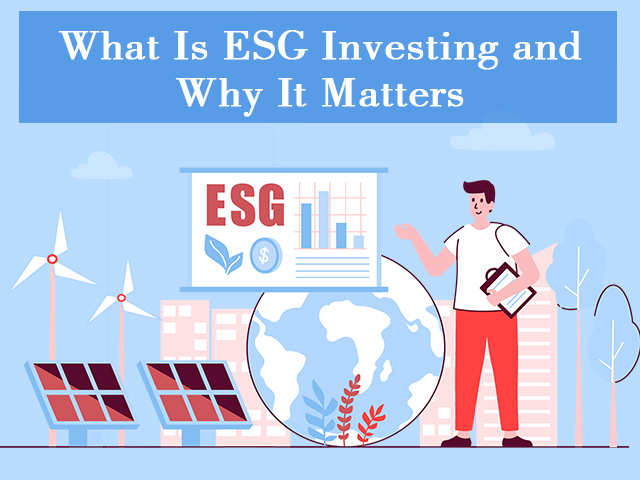Not everyone is yet familiar with ESG, but the term is slowly becoming a dominant topic of discussion among investors. What does ESG stand for? This acronym stands for environmental, social, and governance, which are three criteria that help investors assess if a company is sustainable and ethical. As environmental concerns grow, many investors are more mindful about where their money is going, so they use ESG criteria to screen investments.
What does ESG investing look like from a practical perspective? Why do ESG criteria matter? Read on to learn more.
What Is ESG Investing and Why It Matters

The Ecological Crisis: A Change in Global Mindset
Most consumers are aware that many of our economic activities have had devastating consequences on the environment. From the fashion industry to food retail and agriculture, almost every sector has been blamed for causing pollution and depleting the Earth’s resources.
Whenever they see plastic packaging, buy a plane ticket, or notice the cheap clothing in stores, many consumers automatically think about pollution and climate change. The ecological crisis has caused thus consumers to lose trust in the ethics of the business world.
Naturally, investors are wary of supporting companies or industries that harm the environment. They don’t want to be associated with these companies or face the risks of public backlash. ESG investing refers thus to an environmentally-friendly approach to investments. Companies committed to ESG values have precedence over the rest.
Focus on People and Social Responsibility
The employment sector has also seen several crises in recent years. Some are related to wages, whereas others are related to work conditions. Many global companies have received backlash for mistreating employees or disrespecting health or privacy standards. More and more consumers care about how a company treats its employees, as we can tell from the increasing amount of media reports on the topic.
Another important topic of public discussion is the impact of certain business activities on a community. A company affects the local community by either changing the labor market or consuming local resources.
With these issues in mind, it is clear why social responsibility, and the social component of ESG, is essential. Socially responsible companies build communities, bring people together, and invest in people. They respect their employees and their customers. ESG investing is thus socially responsible investing. Investors can be part of a chain of positive influence by screening their investments based on ESG values.
ESG Investing is Low-Risk Investing
The last component in ESG is governance, which refers to how a company governs itself. Governance is an essential aspect to include because it demonstrates the level of risk associated with an investment. Good governance means low legal, political, or social risks.
How a company is run dictates its long-term success. Investors need some reassurance that the company or the industry is on a predictable path. ESG standards serve a key role in helping investors make informed decisions, whether they focus on the stock market or alternative investments.
Final Words
The world is changing fast, and words like sustainability, ethics, social solidarity, and social responsibility have become more and more present in the business world. Learning more about ESG investing can help you understand current and future trends.




